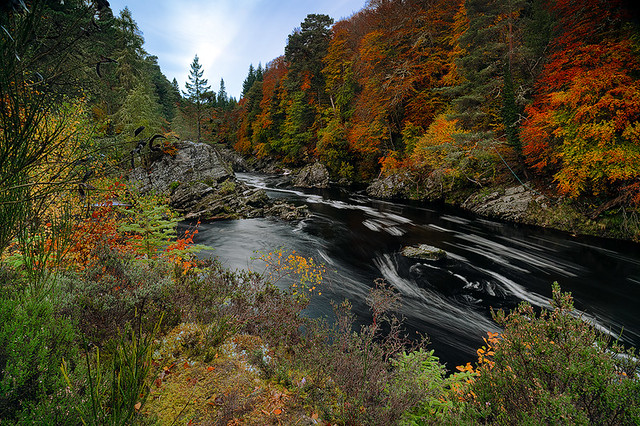Podcast: Play in new window | Download
In this episode we disencumber the cumbersome and confluent Celtic roots of words like encumber.
The Proto-Celtic word *kombereti means to bring together and comes from Proto-Celtic *kom- (with, together) and *bereti (to bear), from PIE *bʰéreti (to be carrying) [source].
Descendants in the modern Celtic languages include:
- cumar = ravine, channel, rut in Irish
- comar [komər] = confluence, concourse in Scottish Gaelic
- cymer [ˈkəmɛr] = confluence, meeting of waters, meeting place or clash of armies in Welsh
- kemper = confluence, junction of streams in Cornish
- kember [ˈkɛm.bɛr] = confluence in Breton
Words from the same Proto-Celtic roots, via Gaulish *comberos (river dam) and Latin combrus (river dam), possibly include encombrer (to block off, clutter, congest, encumber, burden) in French, ingombrare (to encumber, clutter, choke) in Italian, and cumbersome, encumber and incumbrance in English [source].
You can be encumbered and unencumbered in English, but can you be simply cumbered? Yes, you can. Cumber is an old word that means to slow down, hinder or burden. It comes from Middle English combren (to trouble, vex, annoy), from Old French combre (dam, dike), from Latin combrus etc. [source].
Other words related to cumber include cumberer (one that cumbers), cumberless (unencumbered), and cumberground (a totally worthless object or person, something that is just in the way).
Radio Omniglot podcasts are brought to you in association with Blubrry Podcast Hosting, a great place to host your podcasts. Get your first month free with the promo code omniglot.












